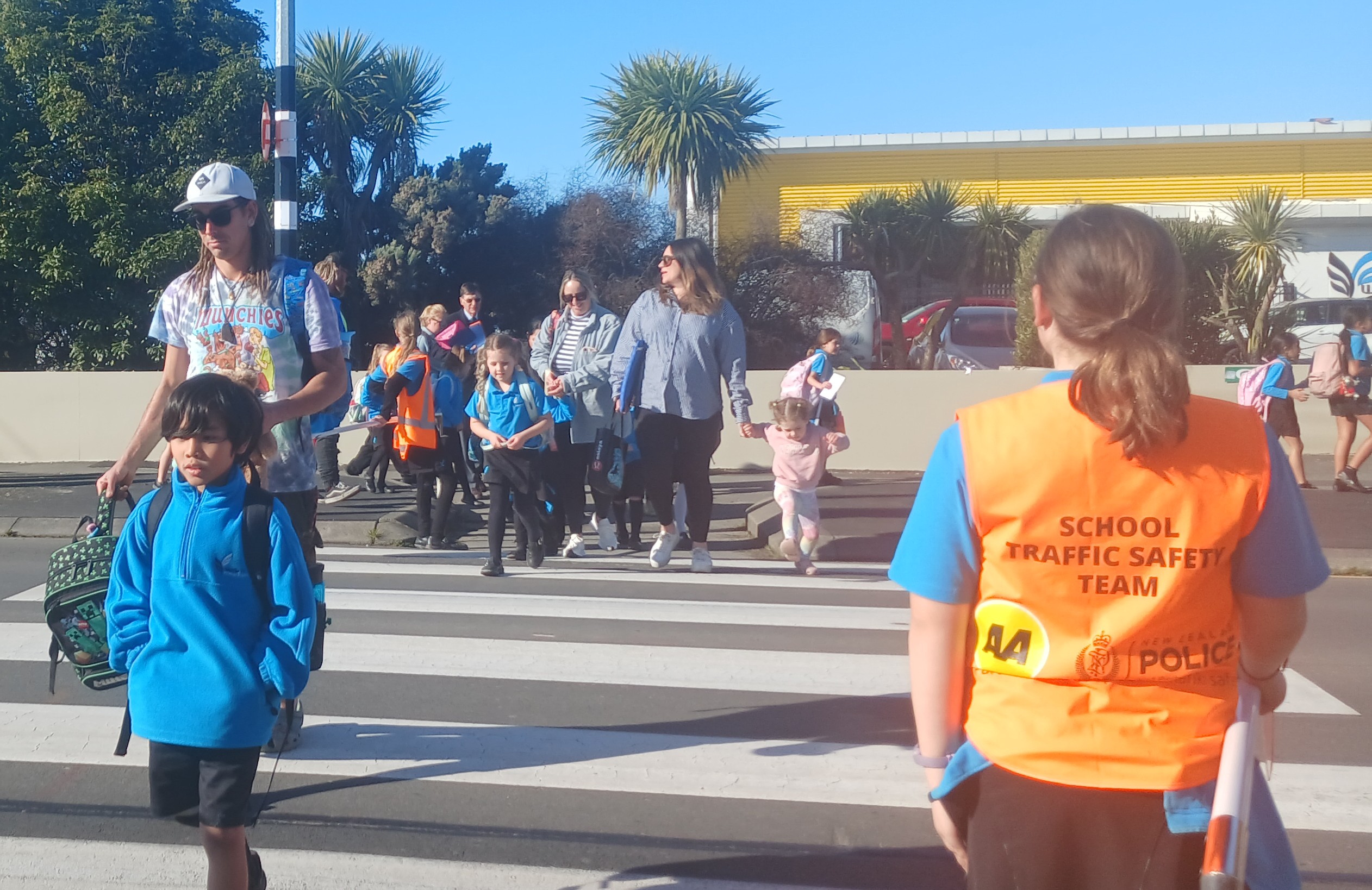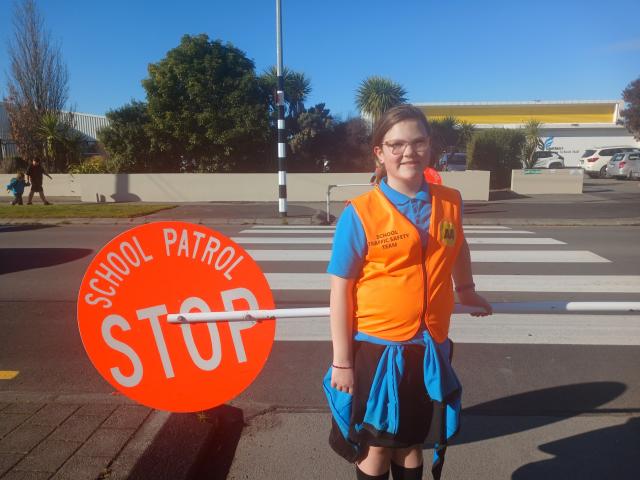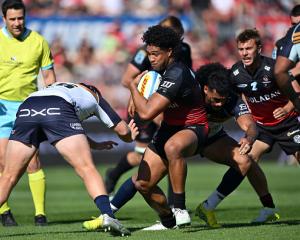
The traffic outside Christchurch's Waitākiri Primary School is "too fast and too dangerous", says principal Andrew Barker. The pupils agree and so do their parents.

The most recent data from the Christchurch City Council shows in 2021 an average of 8794 vehicles passed the school crossing on a weekday - and the traffic has only increased since.
So on August 11, three determined pupils, Greta Lewis, Ruby McLoud, and Leighton Scott, spoke to the Waitai Coastal-Burwood-Linwood Community Board on behalf of the student council and Waitākiri school community.
They are petitioning the city council to introduce raised crossings on either side of the existing pedestrian crossing in an effort to slow down traffic and keep pupils safe.
"There’s no actual physical features to slow traffic down, which is what the raised crossings would be," Greta said.
"We can’t control how busy it is, but we can help control the speed."
Leighton said vehicles are "more powerful now", making them faster and more dangerous.
Over 500 pupils and their families rely on the pedestrian crossing to get to and from school every day, and the road patrol members say some vehicles just don’t slow down.
The crossing patrol operates from 8.30-9am and 3-3.15pm - and the volunteer pupils say they have had a few close calls of their own.

"If it was a raised crossing, they would have had to slow down," he said.
"It is really scary out there."
Ruby said cyclists are forced to bike on the footpaths because the road outside the school is unsafe.
"There are constantly big trucks with trailers crossing the road," she said.

"And all the kids that are biking don’t bike on the road.
"They’re not supposed to bike on the footpath, but I can see why they do," Barker said.
This year the pupils got to work by running surveys and the Waitākiri Student Council came together to create a presentation to deliver to the community board.
Greta and Ruby enlisted the help of Jan Buckland when writing their speech for the board, while Leighton helped out on the day as "techie".

Ruby said: "I think they seemed pretty convinced. We were all really nervous. I didn’t know what to expect. I don’t think any of us have actually done that before."
Greta's mother Krystina Lewis is also a teacher at Waitākiri Primary School. She said the problem has been getting worse every year.
The traffic infrastructure "hasn’t changed in over 27 years, but the traffic has", she said.
Barker said he was "very proud" of the pupils and supports what they are lobbying for.
"We like students having a voice, and I think it’s more powerful if it comes from the students," Barker said.
"For us, this potentially could be saving lives or injuries. Everyone deserves to arrive at school safely."












